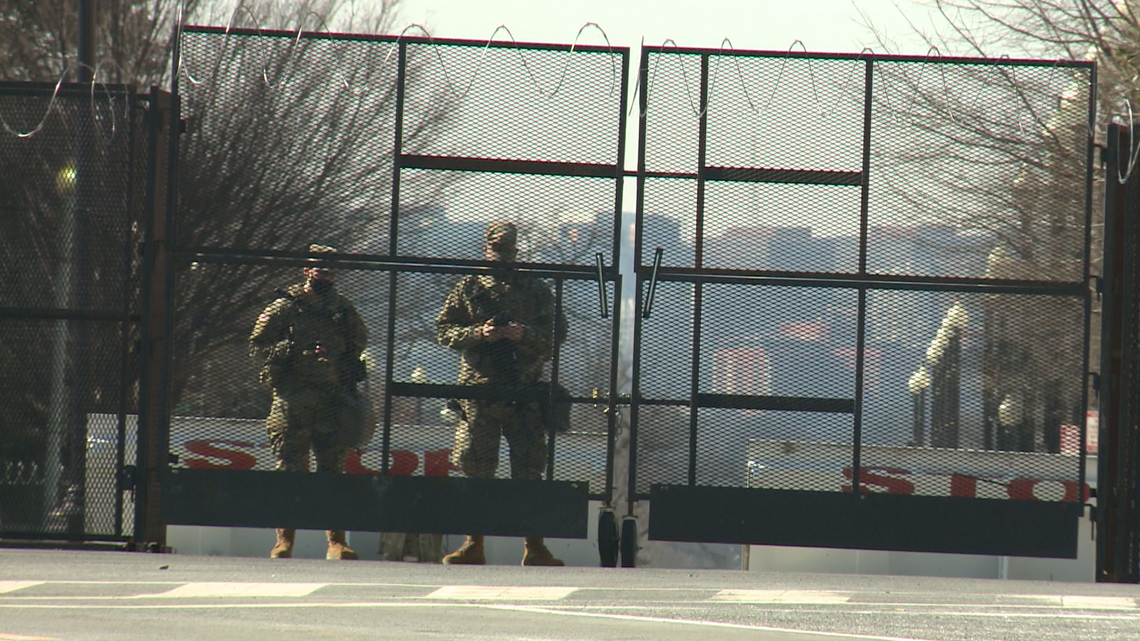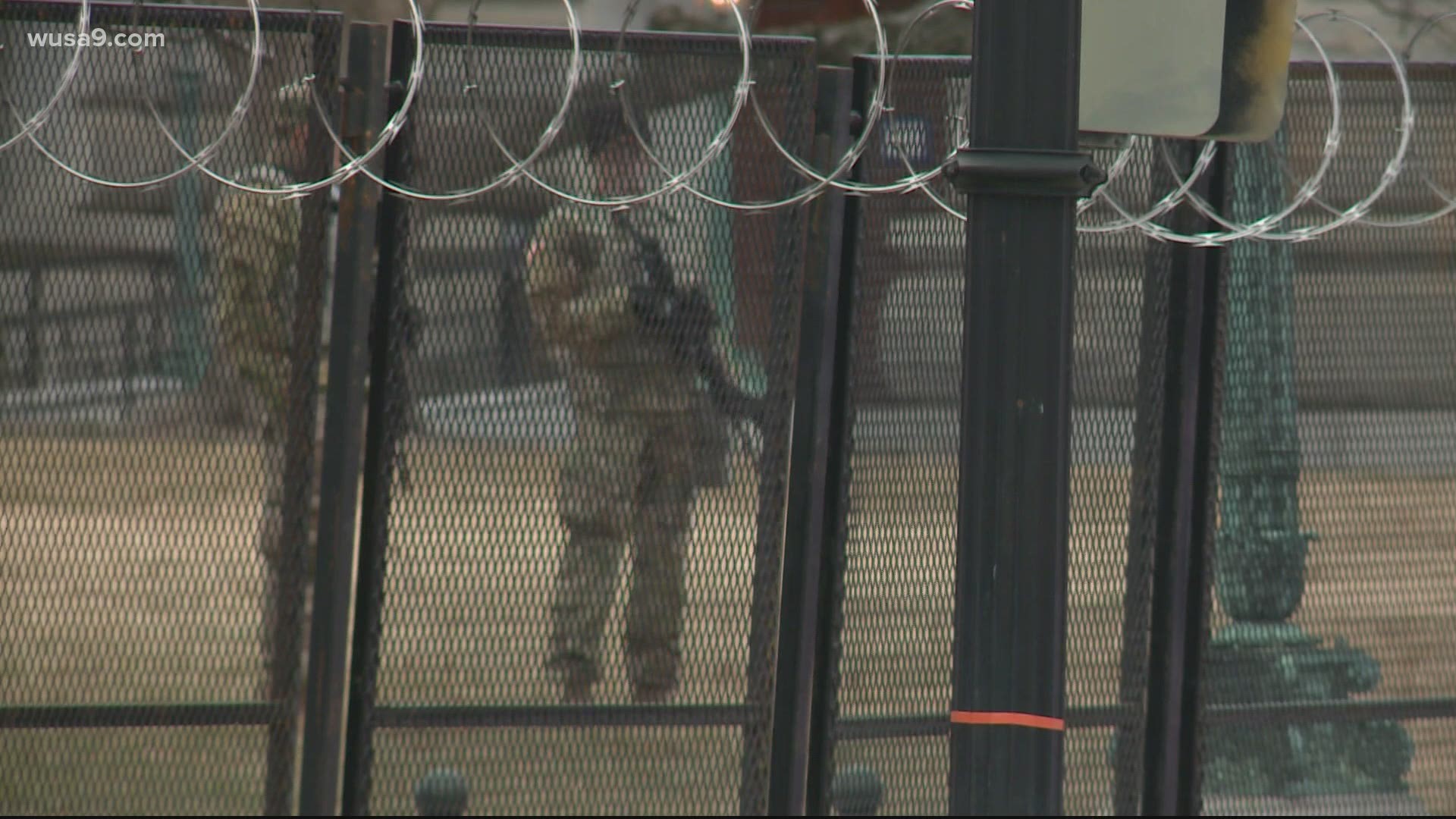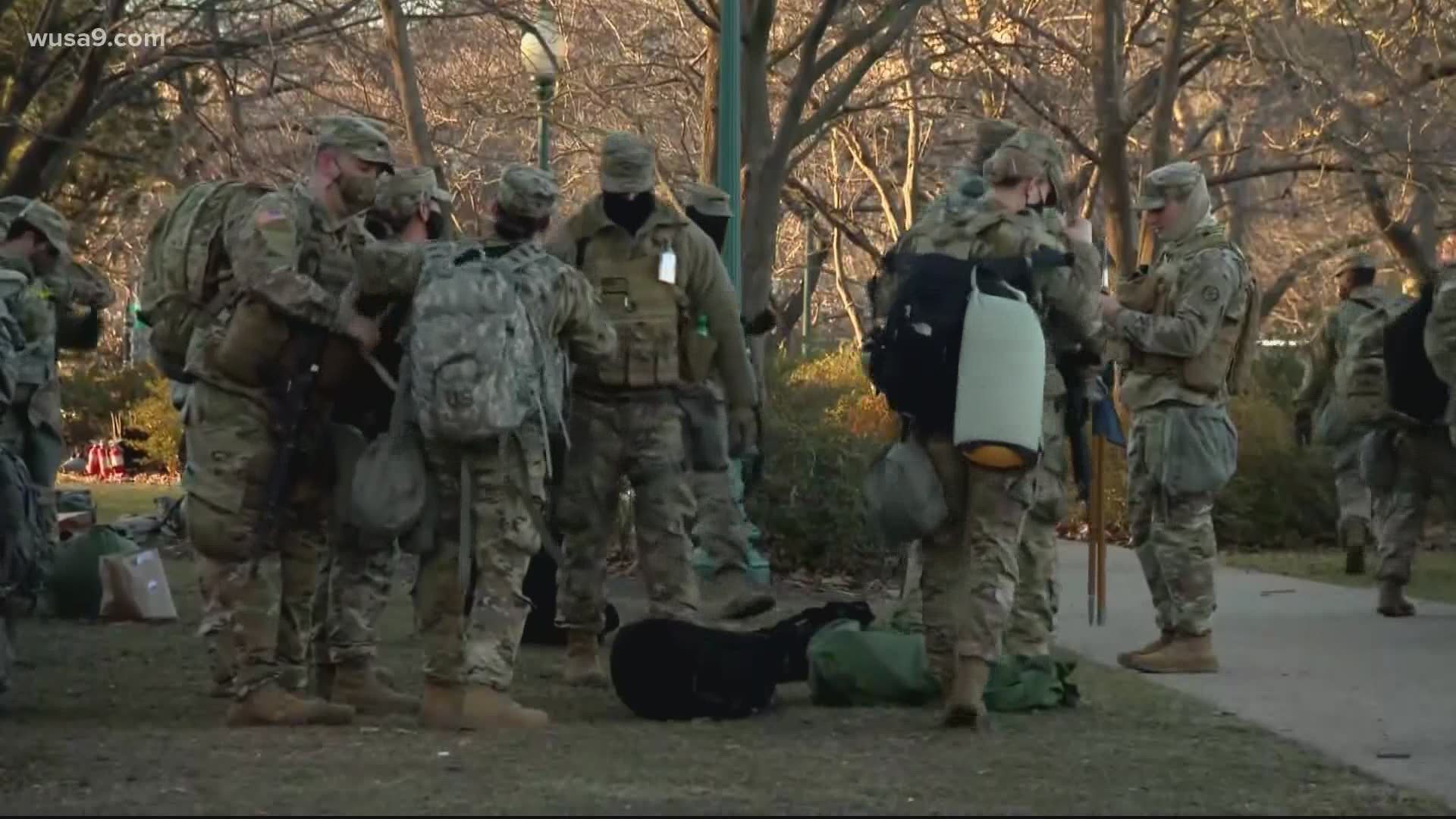WASHINGTON — Sending thousands of National Guard members to the Capitol after the insurrection was costly.
The Department of Defense recently estimated the total cost to be $482.8 million for their deployment from Jan. 6 through March 15.
The DOD said more than half of that total ($283.9 million) comes from personnel costs and the rest ($198.9 million) in operational costs.
A spokesperson said part of the estimate includes coverage for up to 14 days of COVID precautions once guard members return to their home state -- quarantine, for example. They said the operational cost includes lodging (on a central contract), meals, transportation, sustainment and additional military air transportation costs to move required personnel and cargo.
The estimate covers the initial deployment of more than 25,600 National Guard members and the gradual drawdown through mid-March.
The DOD said about 6,200 troops from 30 states, territories, and the District of Columbia are still standing sentry in the District at the request of federal and local law enforcement.
Meanwhile, the miles-long fence remains as a barbed barrier to the Capitol -- a change Capitol Police Chief Yogananda Pittman believes should be permanent.


D.C. Mayor Muriel Bowser, Delegate Eleanor Holmes Norton, and Shadow Senator Paul Strauss, however, want it removed as soon as possible. Regardless, Maryland Congressman David Trone (D) told WUSA9's investigative team last week that the impact of the insurrection on security will likely be seen for a while.
"I think this is going to be a lot like 9/11," Trone said. 'After 9/11, we saw a major change in our airports in how we traveled across the country, and I think we’ll see a significant change here, unfortunately, on restricting access to the Capitol and monitoring movements."
Strauss, D.C.'s non-voting shadow senator, said the costs of keeping the National Guard at least are worth it.
“I think let’s talk about the cost of an insurrection. Let’s talk about the cost of losing our democracy. Let’s talk about the cost in lives to people like the family of Officer Brian Sicknick. That’s incalculable," Strauss said. "Is providing adequate security to protect our democratic institutions expensive? Yes… but the cost to not having them here and losing our democracy, far worse.”
The DOD said guard members are mainly helping with security, medical evacuation, communications, logistics, and safety support.
D.C. Police Chief Robert Contee said Tuesday that there is currently no specific threat related to impeachment.
Still, the fences and armed guards serve as a somber reminder of the threat the country faced one month ago.
“It saddens me that the peaceful transition of power, probably the greatest gift that America ever gave the world, leading by the power of our example, was threatened," Strauss said.
He also compared the cost of protecting our own democracy to foreign wars -- which have been far more expensive. Brown University released a study last year that estimated the total of the wars in the Middle East to be about $6.4 trillion.


